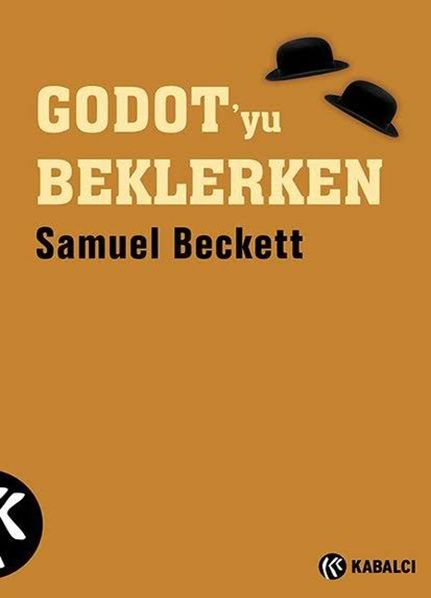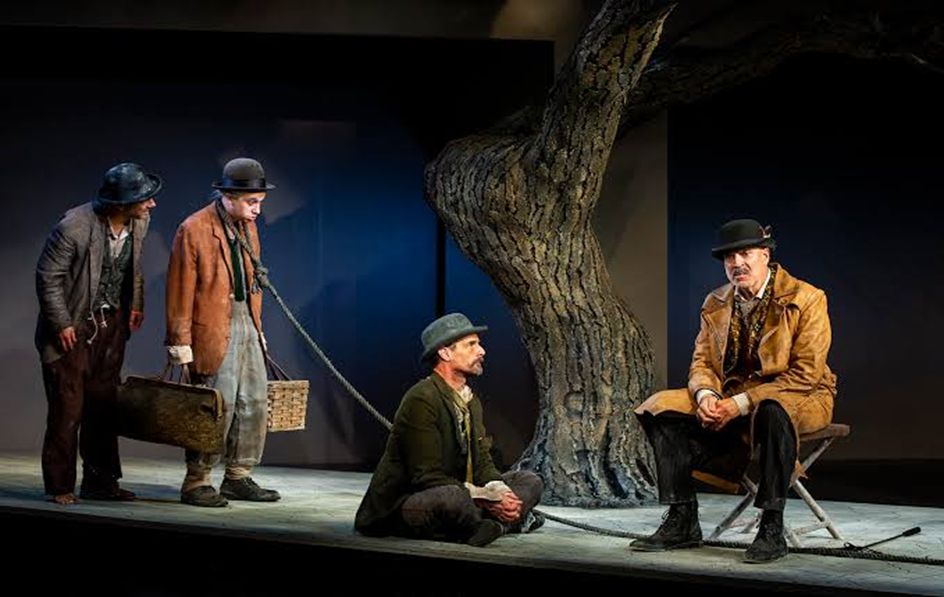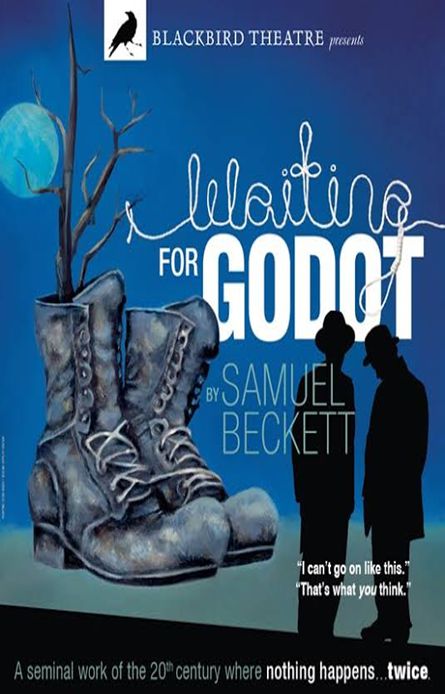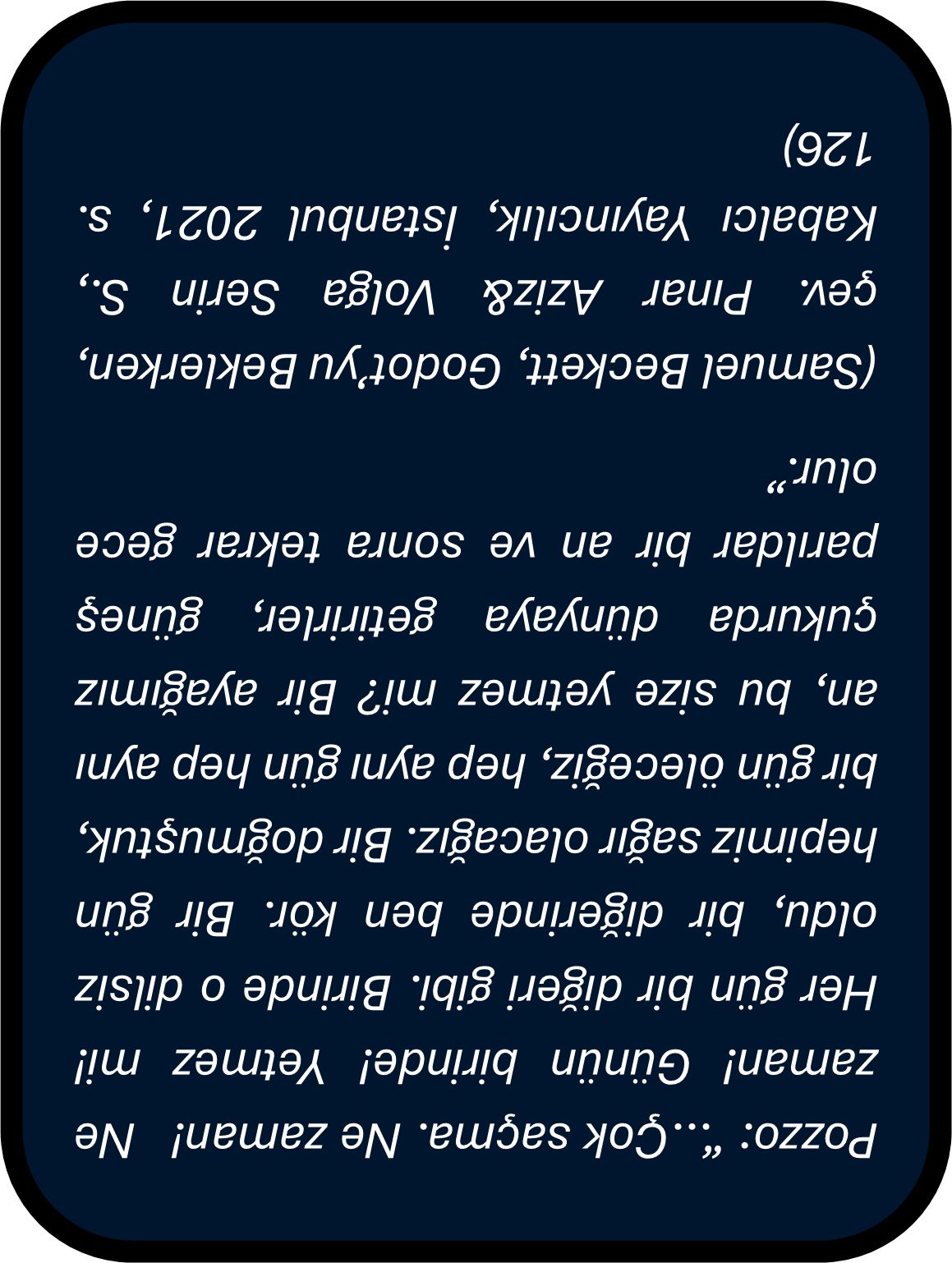Keywords: Absurd Theater, Waiting for Godot, Alienation, Nietzsche, World War II
"Waiting for Godot," written by Samuel Beckett and first performed in 1953, is one of the most striking examples of 'absurd theater.' Beckett, while reflecting the chaotic situation that emerged after World War II, the alienation of the individual from themselves and their surroundings, and their absurd and meaningless behaviors, inevitably pushes the individual into a psychological crisis, forcing them to think deeply.

I believe it is essential to first understand the play. Beckett created his characters in pairs: Vladimir-Estragon, Lucky-Pozzo. The characters, as well as the setting and costumes, are quite limited. The only location we know is a country road with a single tree. Estragon and Vladimir wait for Godot tirelessly. But who or what is this Godot? Some say it is a small hope, others say it is nothingness or simply the unknown. Godot never appears on stage, and the entire story is just an endless wait. Isn’t that just like us? We endlessly wait for our dreams, goals, or hopes. Our actions lack meaning, just like Estragon and Vladimir, apart from waiting. We are born, we wait to grow up so we can start school; once we start school, we wait for it to end so we can start working. As we run in the hustle and bustle of life, we realize that we’ve reached our fifties, and then we wait for death to come and take us. What has changed from yesterday to today, other than the endless waiting? What’s the difference between the waiting of Vladimir and Estragon and our stumbling and getting stuck in the rush of life?

A scene from Samuel Beckett's "Waiting for Godot"
'Godot' is a word of French origin, meaning boot. In the first act of the play, we see Estragon trying to remove a stone from his shoe. Together with Vladimir, they occasionally check their boots while waiting for Godot, but we know he will never come. Yet they continue this meaningless wait without a moment’s hesitation. During this waiting, they encounter Pozzo and Lucky. Lucky is depicted as a slave in the play, and Pozzo as the master. They too seem to be headed somewhere, but the destination is uncertain. The only thing we know for sure is that none of these characters can engage in a separate task. Here, Nietzsche's concept of the 'herd mentality' comes to mind. With the rise of capitalism and materialism after World War II, individuals have directed themselves toward a goal like herds. This situation has also led to psychological and mental issues surfacing in individuals on a mass scale. All these factors drag individuals into a pit, causing them to drown and become tangled, much like a knotted rope, and eventually become alienated and pushed aside. As readers, we can understand this complexity and meaninglessness in both the nonsensical speeches of Lucky and the never-ending wait. So, what falls upon us in this caravan of waiting, where power imprisons the powerless and drags them into the unknown, is to seek and give meaning to what we are searching for without succumbing to our helplessness. In the end, it’s not about the waiting, but rather what is being waited for. But what are we waiting for in such a chaotic, lonely world?


For those who want to watch, here is the link: https://www.youtube.com/watch?v=-Va9xN_xXYw
Tuğbanur Suna
Yücel Cultural Foundation
Voluntary Author
YKV Content:1567